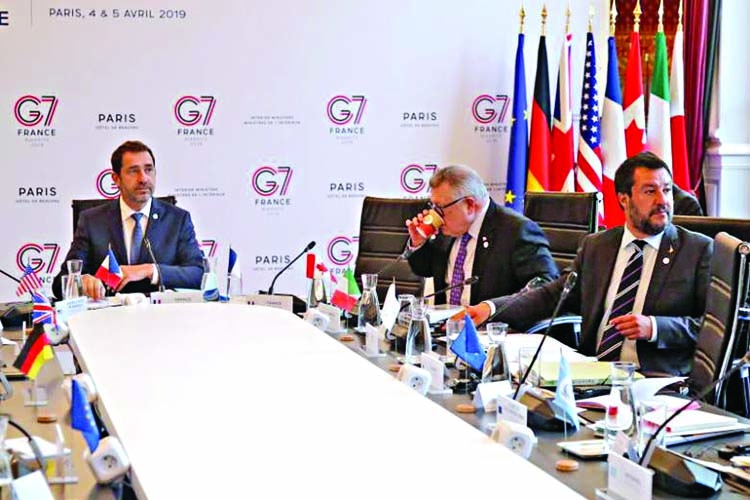France hosts wary G-7 in shadow of Trump snub

France offered a warm welcome to foreign ministers from the Group of Seven (G-7) on Friday for a meeting overshadowed by a snub from Donald Trump's US administration, a meltdown in Britain over Brexit and months of anti-government protests at home.
Protesters spray-painted slogans attacking President Emmanuel Macron in the sleepy coastal resort of Dinard where the ministers were due to gather to set the agenda for their leaders at the annual big power summit in August.Workers at dawn scrubbed furiously at walls daubed with "Thieving banks", "Revolution" and "No to the G-7", slogans which mirrored the anger vented across France in more than five months of anti-government "yellow vest" protests.
French diplomats say they have scaled back their ambitions for their presidency of the club of big rich countries, after Mr Trump backed out of a joint communiqué at last year's summit in Canada and criticized Prime Minister Justin Trudeau.US Secretary of State Mike Pompeo will not attend and is sending a deputy. One seasoned diplomat in Paris said Mr Pompeo had sent a message that he had "better things to do".
Still, the agenda includes important issues from cyber security and foreign interference in democracies, to countering trafficking in the Sahel and inequality.British Foreign Secretary Jeremy Hunt said he would call on his European counterparts to support his government's request for a further delay to Britain's exit from the EU, scheduled to take place in a week unless EU countries agree on an extension.
Prime Minister Theresa May has been unable to pass her withdrawal agreement in Parliament. Mr Hunt said the G-7 was proof Britain was not pulling back from a leading international role."The UK's involvement in the G-7 is vital for our collective security and prosperity as we seek to protect the rules-based international system," he said. "Be in no doubt that once Brexit has happened, the UK will remain a global power."
Along with the United States, France and Britain, the group includes Japan, Germany, Italy, Canada and the European Union.The ministerial meeting is meant to ensure that when the leaders convene in Biarritz in August, they are largely in agreement.But tensions between the United States and its European allies, particularly over trade, climate change and the nuclear deal with Iran, have meant that where they were once largely in accord, they now seek the lowest common denominator.
